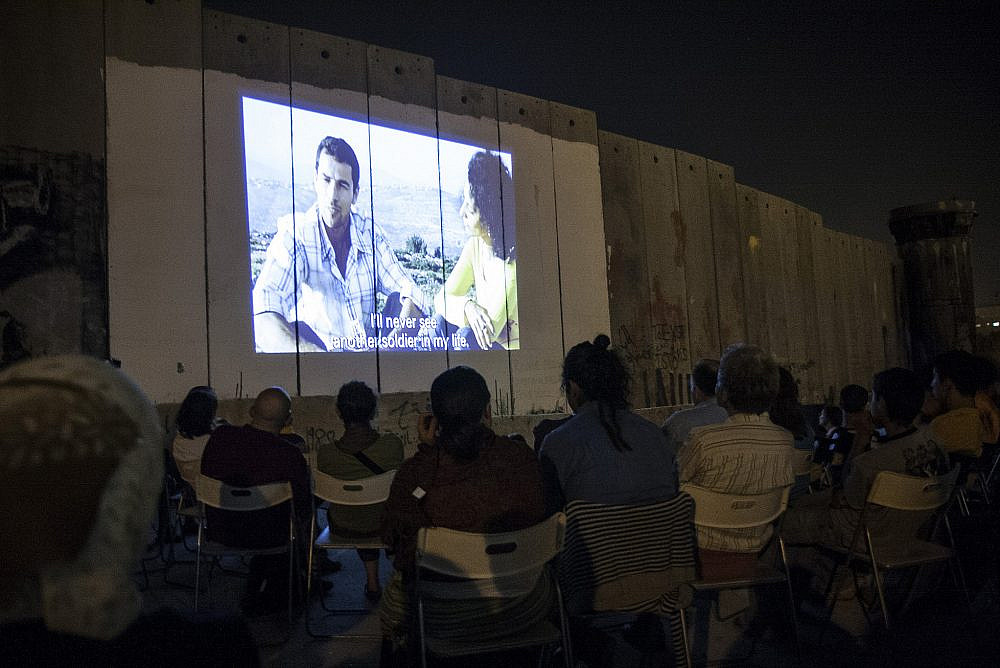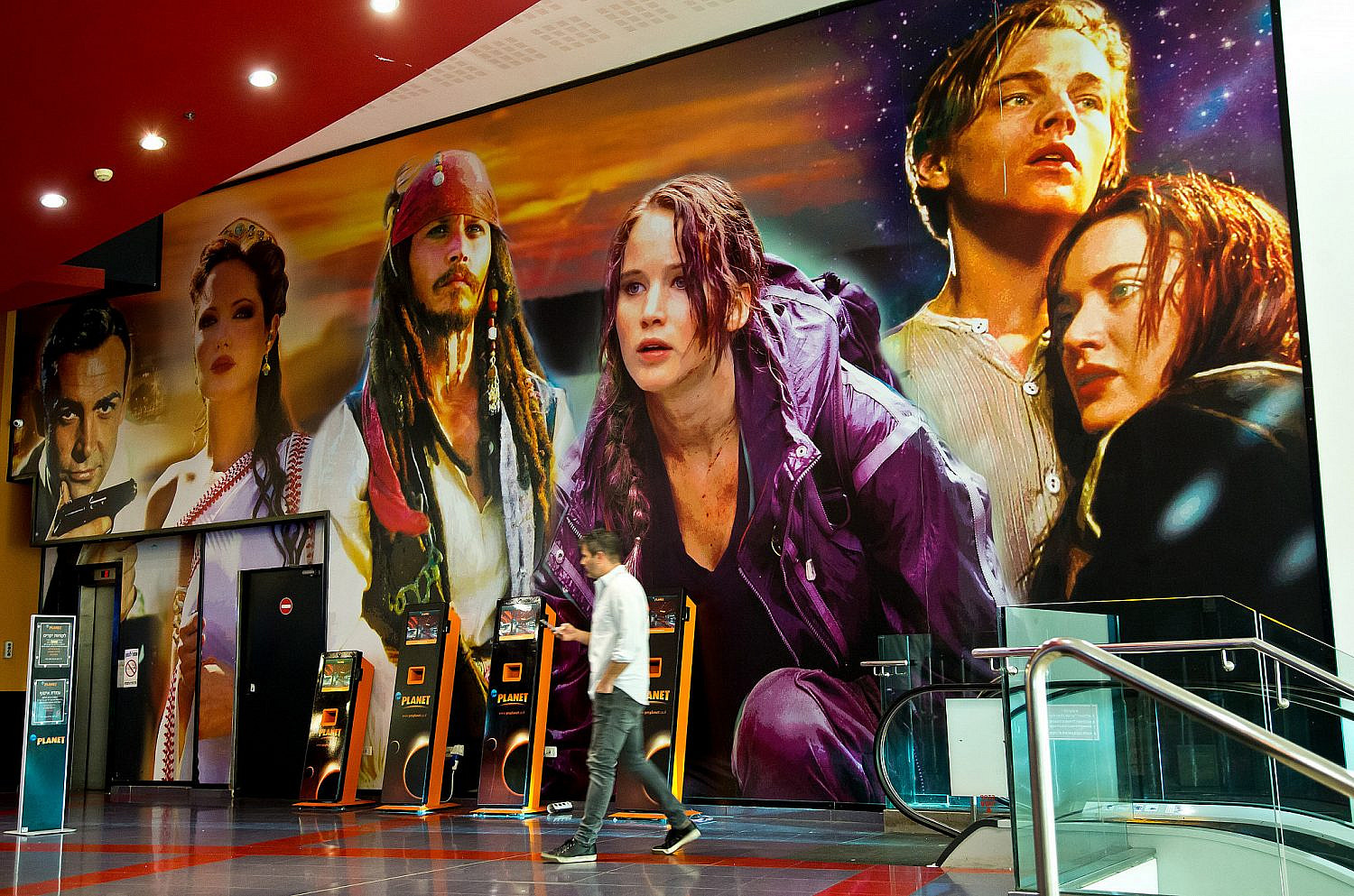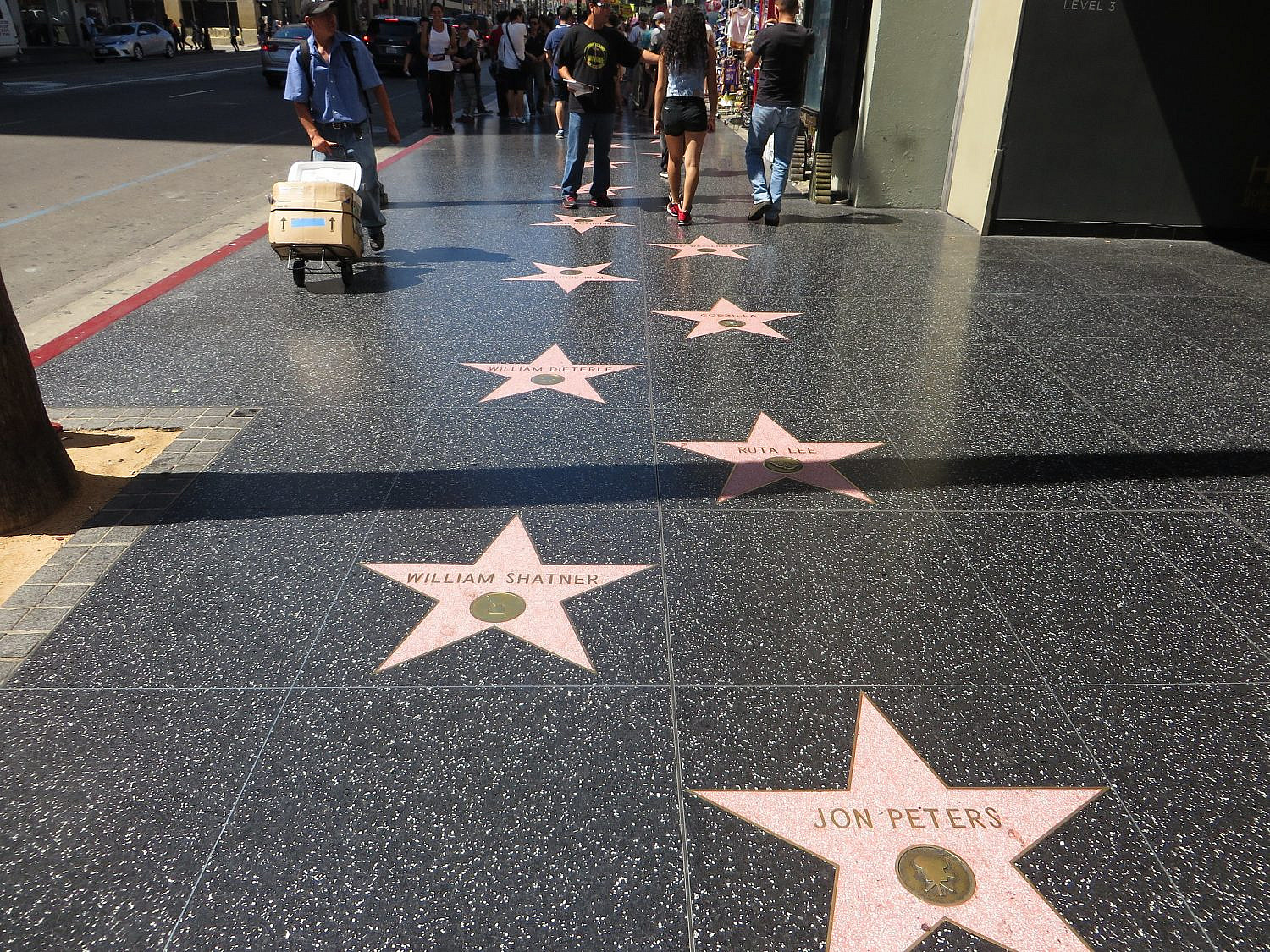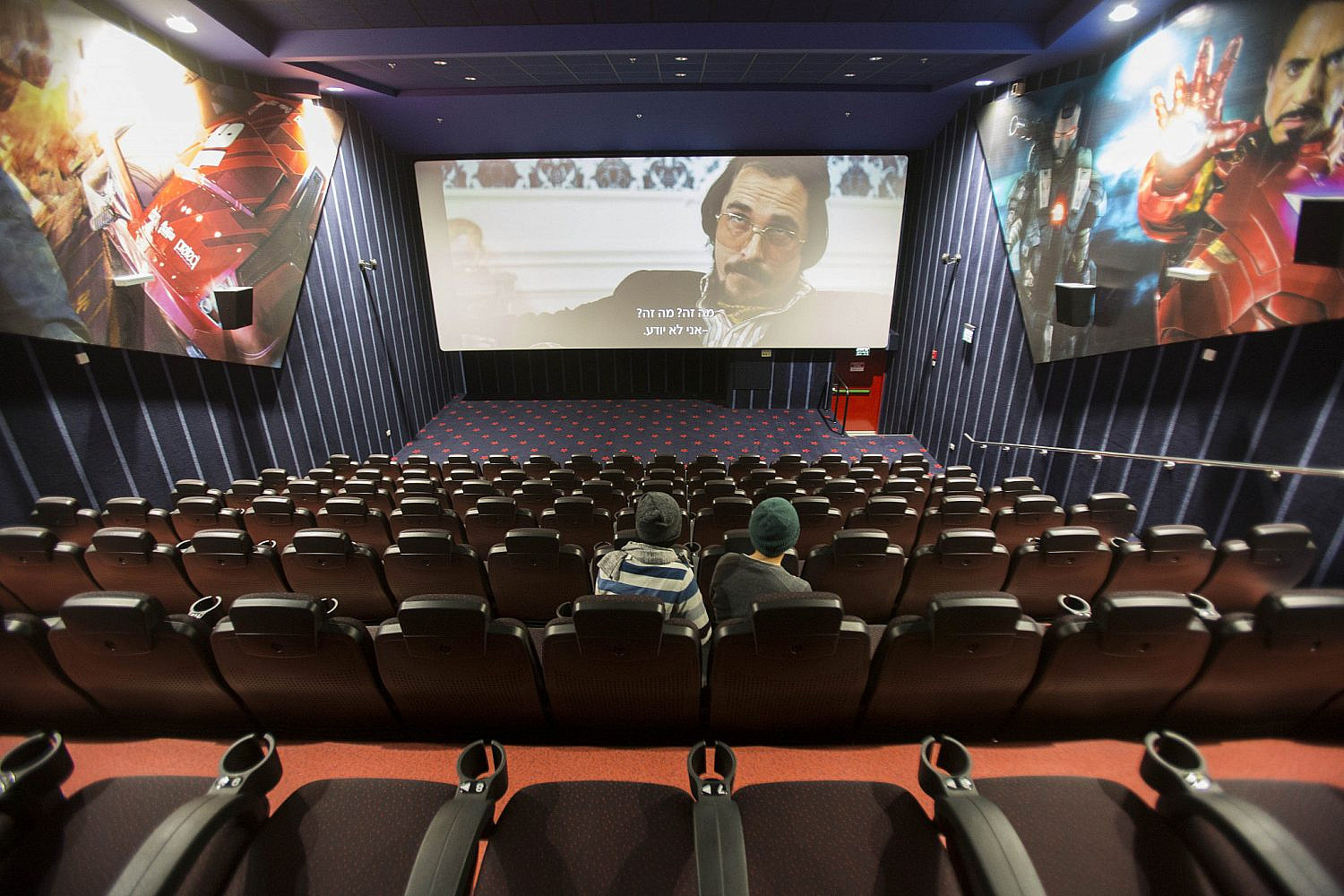It’s no mean feat for an Arab film director to work in the entertainment capital of the world, let alone make films about Palestine. But Hany Abu-Assad, 59, has done just that. Born in Nazareth and based in the Netherlands, he has under his belt 11 films and has worked with some of Hollywood’s top stars, including Idris Elba, Kate Winslet, and Mickey Rourke. Two of his most famous productions — 2005’s “Paradise Now“ and 2013’s “Omar” — received Oscar nominations for best foreign film, representing Palestine in one of the most widely-watched events of the year.
That impressive record, though, has not made Abu-Assad’s work any easier. Among supposedly progressive circles in Hollywood, many producers and studios who would otherwise support a range of political films are still “afraid to address anything involving Palestinians,” he told me during an interview a few months ago. Even if American producers did not have pro-Israel affinities or hold racist views of Arabs, they would not regard Palestinian films as financially profitable ventures, and were therefore uninterested in investing in such films, he said.
Yet in the face of that stifling environment, Abu-Assad believes that Palestinians should take stock of their tremendous cultural achievements. “Where else can you find such accomplished art and artists who have had war waged against them for 70 years? It’s a unique story,” he said.
Abu-Assad’s words offer some solace and energy for Palestinian artists like myself. When I spoke with him last October, my plan was to mark 20 years since the start of the Second Intifada by speaking to an artist who had inspired me to enter the world of cinema and to get involved with cultural and artistic activism. But between COVID-19, Israel’s normalization agreements with Arab regimes, and personal struggles with settling back in Israel-Palestine from the United States, I felt as if there was no point in publishing the interview; the cultural activist in me had given up.
The Palestinian uprising in May changed all that. The last few months have restored pride, life, and unity to the Palestinian struggle. Media outlets and international audiences have become more interested not only in our political story, but also our art. The challenges of Palestinian filmmaking have not changed, but Abu-Assad offers some thoughts on how to confront them while staying true to artistic integrity — even if his ideas are not agreeable to everyone, including myself.
Our conversation started, as is often the case when discussing Palestinian culture, with the difficulties we have experienced in creating art. In the absence of Palestinian funding and with insufficient Arab sponsorship, a large proportion of Palestinian artists have been forced to rely on Israeli state or private funds to make their productions.
“I’m the last person who would criticize a Palestinian director for taking Israeli funds,” Abu-Assad says. “I’m not in that position today and I’m grateful I don’t need it. Every director has to decide for themselves and weigh the risks. Arab countries could boycott them if they receive Israeli funding. On the other hand, it’s our money too and we’re entitled to it.” One such incident of this risk involved the Palestinian director Maha Haj, whose wonderful film “Personal Affairs” was pulled from a scheduled screening in Beirut by Lebanese security services in 2016, because Israeli funds had gone into the film.
A major problem, Abu-Assad said, is that a “big proportion of the funding — and this really isn’t a conspiracy theory — is aimed at improving Israel’s image. They give money to ‘Israeli Arabs,’ as we’re called around the world, in order to show that there’s a democracy here, even if the films criticize Israel. Artists need to be aware of this agenda. Zionists might exploit you in service of their cynical goals.”
Let’s go back to funding shortages. Maybe we simply need to seek out wealthy Palestinians abroad? What choice do we have?
“I did that at your age. I approached wealthy people for funding for my films, and it turned out to be a headache. Now I separate out [responsibilities] very clearly: I write the film and then find a producer, and they can be the one to deal with the headache. I got involved with the funding for my last project and I regret it — it’s exasperating and tiring. I’m an artist, not a businessman, and want to focus on my script. I was forced to do it at your age and I understand young people like you.”
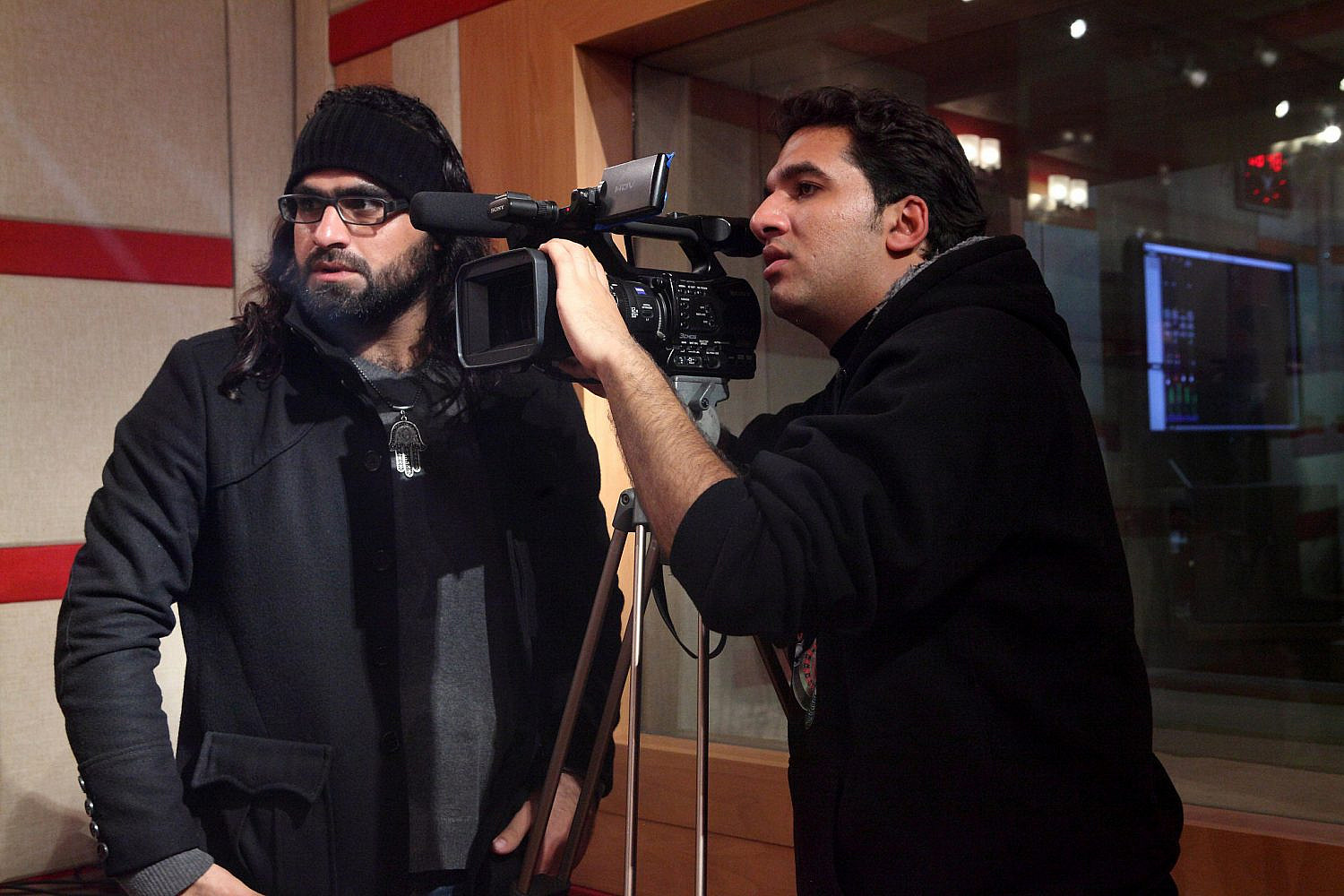
It’s a miracle that there’s a Palestinian cinema scene at all, given the challenges in funding it.
“There still isn’t enough appreciation among Palestinians as to the importance of cinema. What you say is true, it is a miracle that there’s a Palestinian movie scene here with high quality films. [But] I receive a lot more respect around the world than I do here in Palestine. It’s very strange; it’s not that I’m looking for this kind of respect, and there’s an advantage to keeping my feet on the ground.”
‘A profit-loss equation’
Abu-Assad is currently finishing up his latest movie, “Huda’s Salon,” which tells the story of Palestinian women who visit a hair salon and end up being blackmailed by the occupation authorities. “Drop it, I’ll let the film speak for itself when it comes out,” Abu-Assad said, rebuffing my efforts to get him to speak about his new project. He is a Hollywood director, after all.
Abu-Assad’s ability to work on such a project as a Palestinian cannot be taken for granted. For years, Hollywood has served as a tool for creating and perpetuating harmful stereotypes about Arabs. The American-Lebanese researcher Jack Shaheen’s book on the subject, “Reel Bad Arabs: How Hollywood Vilifies a People” — which was turned into a documentary in 2006 — describes how Hollywood not only perpetuates negative stereotypes about Arabs, but also how Israeli film producers in the 1980s set out to establish the portrayal of Palestinians and Arabs as “terrorists.”
“There’s no doubt that certain arms of the American security establishment, such as the CIA, have reached Hollywood,” Abu-Assad says. “They also have an agenda and they use Hollywood in order to shape public opinion. Walt Disney, for example, had contacts in the FBI. This is no longer a secret.
“Of course I have no connection with this part of Hollywood,” he adds, laughing. “But there is a part of Hollywood that really does just want to make movies and profit. Still, the Americans really respect directors, especially those who have something to say. The appreciation I felt with 20th Century Fox [with whom Abu-Assad directed “The Mountain Between Us”], I haven’t found elsewhere. For a moment I didn’t feel as if I was a foreigner with them.”
What if you tried to make a film on Palestine in Hollywood? I’m not sure you’d get the same respect.
“If you approach Hollywood producers who have a Zionist, capitalist, or imperialist agenda, of course they’ll be against you. They’ve never interested me. It’s also no secret that they’re against me personally. There’s a far-left contingent in Hollywood that controls part of the media and the Oscars, and that genuinely wants to make high-quality cinema, and may sometimes come out against imperialism and capitalism, but not really against Zionism. They’re either afraid or some of them are leftist Zionists themselves”
Abu-Assad laughs again, contemplating “the strange invention” of the Zionist left. “There is trauma on the Zionist left, which was built on existential fear and which caused them to accept Israeli Zionism, while remaining progressive because they’re on the left. That’s the Hollywood left, which is afraid to address anything involving Palestinians.”
So how does one get through to them?
“You have to understand, Hollywood was built entirely on a profit-loss equation: spend a million in order to make two million. And I’m talking about every project here. Even if it’s a pro-Palestinian film.”
But Palestinian films, like most independent or arthouse films, don’t make money.
“And that’s the root of the problem. How do they test this equation? They look at each Palestinian film, see how much money it has made. You’ll say to me, ‘make commercial films,’ but it’s not easy to do that when you have a political and artistic say. The Palestinian issue isn’t as popular as we think. The average viewer sees Palestine in the news all the time and it’s always in a depressing light, so is that going to make them want to watch a film about it? Most of the time they’ll say ‘no, thank you.’ Most viewers want to be entertained, and that’s where the commercial industry comes in.”
You’re depressing me.
Abu-Assad laughs once more. “There’s one iron rule you need to understand: even if a project denigrates Israel and the U.S., if it’s 100 percent guaranteed to make its producers money, there’s a chance they’ll fund you.”
‘Keep trying to spoil their party’
Back on the subject of the Israeli film scene, I complain to Abu-Assad about Israeli directors who make films about the occupation — that is, those who make international careers out of our suffering — without involving Palestinians in the creative process.
I mention television series such as “Fauda,” in which Arabs are stereotypically portrayed as unethical, criminals, and terrorists, while Israelis are presented as heroes. “Fauda” has an admittedly right-wing agenda, but even productions by supposedly more progressive directors make cynical and unfair use of the occupation.
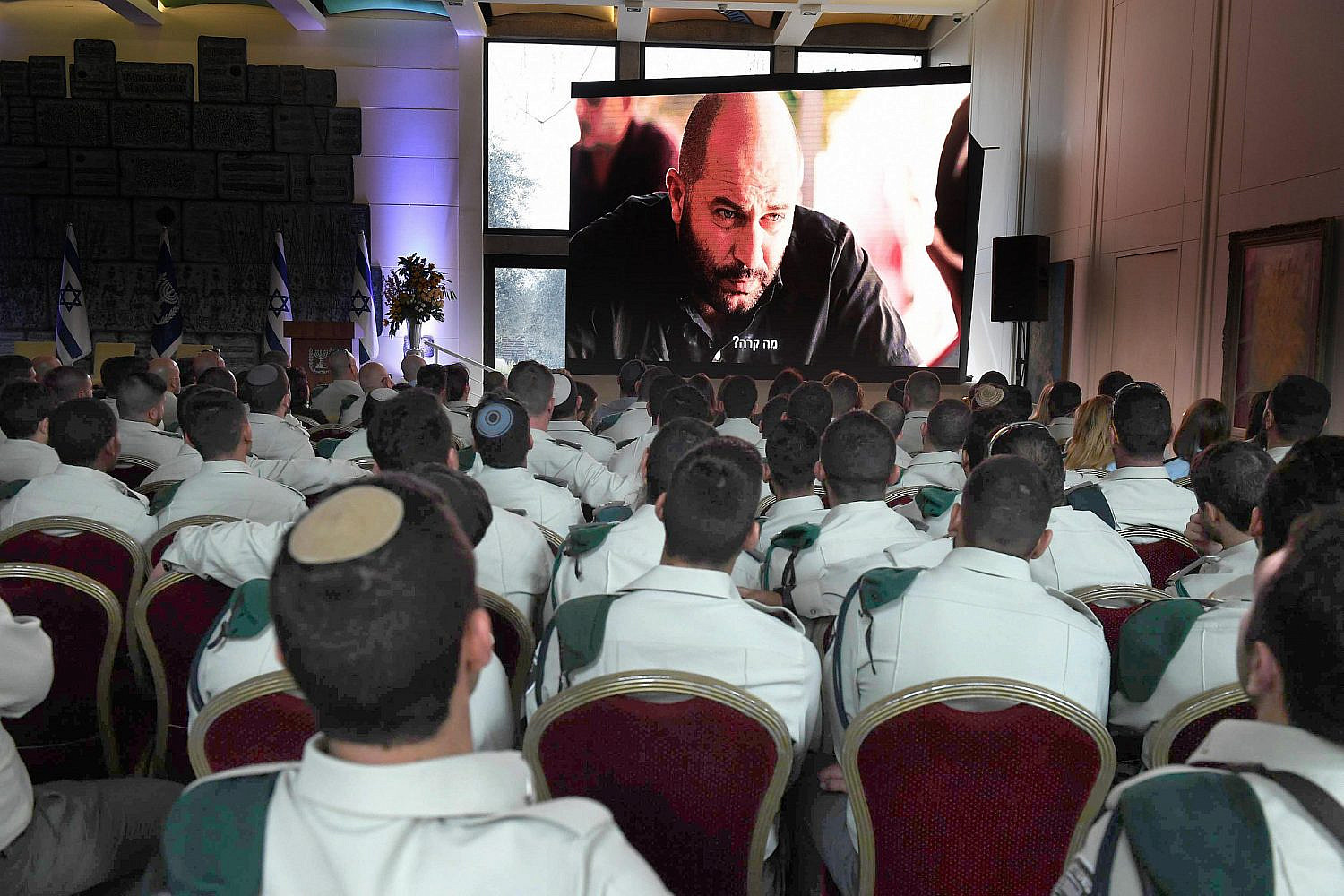
“I don’t agree with you,” retorts Abu-Assad. “The occupation is also [those directors’] issue and not just yours, and it’s the creator’s right to make films about it. After all, a film shows how you as a creator understand and view things. That doesn’t mean you need a Palestinian to explain things to you. The research is the responsibility of the creator, and they don’t need to involve you as a Palestinian.”
I disagree with you on that. There’s no lack of Israeli films in which every Arab is violent or primitive, precisely for that reason.
“But that’s not your responsibility! It says more about [the Israeli creator] than it does about you. They’re the ones who then come across as ridiculous and sad, not you. “Omar” came out at the same time as an Israeli film telling a very similar story [2013’s “Bethlehem”], with everything I talk about in my film, except for one difference: in the Israeli film all the Palestinian characters were hollow and pathetic. Where is the film today? Neither of us can remember its name. Leave the Israeli director to their own devices, it’ll only show how shallow they are.”
That’s a bit of a privileged thing to say — not all of us are Hany Abu-Assad.
“That’s the world we live in. I get your frustration because I also went through it, and still do. But what can you do? No one can change the world. You can only change yourself and your work. It’s not your responsibility to change the entire system. Trying to take on the world is like trying to blow a balloon with a hole — you’ll blow and blow, and it’ll never inflate. Stick to your principles and don’t change. Stay as you are and keep trying to spoil their party.”
So how do you choose a story?
“Here’s a story I’ve never told. In the beginning there were [Palestinian directors] Elia Suleiman, Rashid Masharawi, Sharif Waked, and me. We were young guys of the same age who still hadn’t done anything. I remember arguing with Elia: how could we make an impact? How could we stand out? Elia thought the world could not be changed, but that you could have an impact provided you develop your own language. So he developed his own style of storytelling.
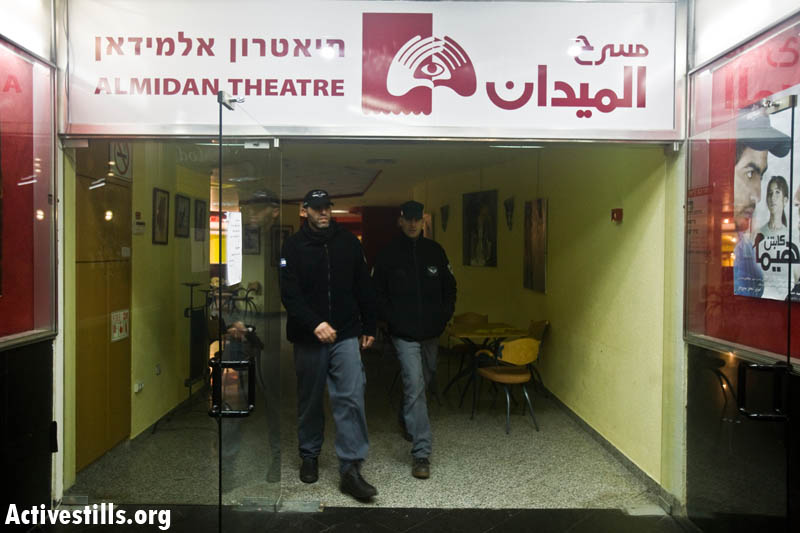
“And what did I do? I looked at 10 films that had influenced me and that I deeply respected. I realized that each of those films were dramas with their own different cinematic language, such as “One Flew Over the Cuckoo’s Nest,” which I first saw when I was 16. [Bernardo Bertolucci’s] “1900″ was also on the list.
“Of course, when I first started out, I dreamed of taking on Zionism. So what did I get out of that film [“1900″]? That if you rebel, the establishment might kill you, but your inspiration will break down all the imaginary boundaries in your life. Your fear that Zionism will take your life away is preventing you from living. You can’t let it control your life. I realized that what speaks to me is not the cinematic language, but drama.”
Elia Suleiman and Abu-Assad’s films are indeed completely different from each other. Abu-Assad draws on more traditional or even mainstream cinematic conventions, while Suleiman generally adopts more fantastical elements in his films.
“For me, good cinema heightens your emotions so you can think without feeling,” said Abu-Assad. “Doing that without drama isn’t really possible. At the same time, I understand Elia Suleiman. After all, the story is dead: every story has already been told. It’s now down to changing little details and telling a story which has already been told in a somewhat different way. That’s why [Suleiman] decided to turn to intellect.”
‘A legend is being built here’
One of the criticisms Palestinians leveled at Abu-Assad following the release of “Omar,” which features a young Palestinian being forced into collaborating with Israeli security services, involved his representation of the Israeli Shin Bet agent who “ran” the film’s main character. Many were unhappy with the empathy the film directed toward these brokers of the occupation.
“I think the more you punish your enemies, the more you stoke your own malice,” Abu Assad explained. “If you imagine your enemy to be completely evil, you’re above all lying to yourself. And you also assist the establishment in avoiding responsibility, because you’re saying that this person, this enemy, is the devil — and not the establishment. Most Israelis — 99 percent of them — are victims, like us. Racists, but also victims. Because who’s teaching racism here? The Israeli elite. And they are morally corrupt.
“Most Israelis are simple people. You want to see and hear about the way they brag to the world, and what that says about them? To me that says they’re simple people. They think they’re the greatest and most successful nation, and they broadcast it constantly. That’s the opposite of sophisticated behavior. The establishment lied to them and they bought it because they are the opposite of the image they’re trying to sell to the world.
“Where does evil come from? Evil comes from people. And a person can hate you and occupy you and shoot you, and at the same time love their child who they take to kindergarten in the morning. Almost no one is totally and utterly evil, so why invent things that are almost non-existent?”
Our art always goes back to the occupation of 1948 or 1967, even though there’s much more to our history. Our art is political, even if global.
“I’m most interested in making art with a local background, but that speaks to the whole world. Because for me, as an artist, there is no racism that will not go away. There is no occupation that will not go away. It’s a straightforward history. Either the occupation will consume itself or some other force will take it down, but it’s an undeniable fact that it will disappear.
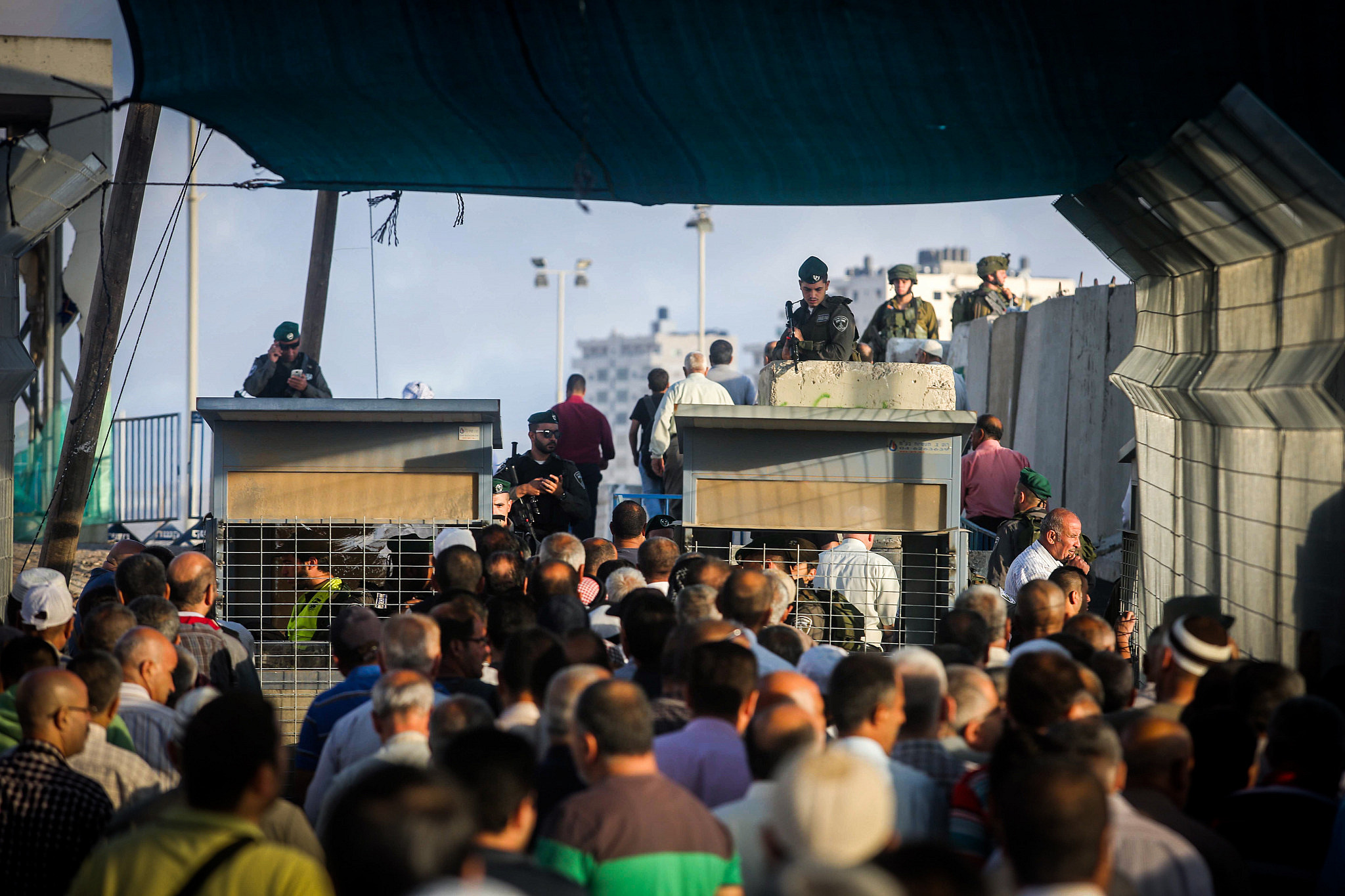
“Since the occupation will ultimately vanish, and your role at the moment is to struggle against it, you are not just fighting it within the parameters it has set for you, but rather are widening those parameters. Go and fight the occupation artistically outside its own small, miserable playing field. Strive to do things that are outside the boundaries of your time and place. That way, your film will stand the test of time even after the occupation has ended.”
From the vantage point of your 59 years and your global experience, what advice would you give to the next generation of artists?
“You take a broad look at the Palestinian issue and feel that it’s a miracle it’s still alive. A legend is being built here that will be remembered by future generations. After all, some of the world’s most powerful forces are fighting against you, and are trying to destroy both your physical presence on the ground and the presence of Palestinians as one nation among many.
“Until the 1970s, the West and Israel fought hard to erase the idea of ‘Palestine’ from the lexicon. When I was in Europe, I heard from everyone that there’s no such thing as Palestine. They are pouring immense amounts of money and effort into trying to marginalize our art. A society is measured by two things: its culture and its art. Where else can you find such accomplished art and artists who have had war waged against them for 70 years? It’s a unique story.
“After all, it’s not just about armed opposition to the occupation, but also about using art. Opposing the occupation is also about rejecting the idea that this land belongs to Jews alone. Art is the best tool for that. I advise the next generation to keep being proud to be Palestinian. I don’t care what they do or how it’s connected to the occupation, and it doesn’t matter. It’s enough to have the phrase ‘Palestinian artist’ on your work whether it’s about love, music, or anything else that isn’t about the occupation. That’s already a remarkable victory against those who are trying to erase us.”
A version of this article was first published in Hebrew on Local Call. Read it here.


